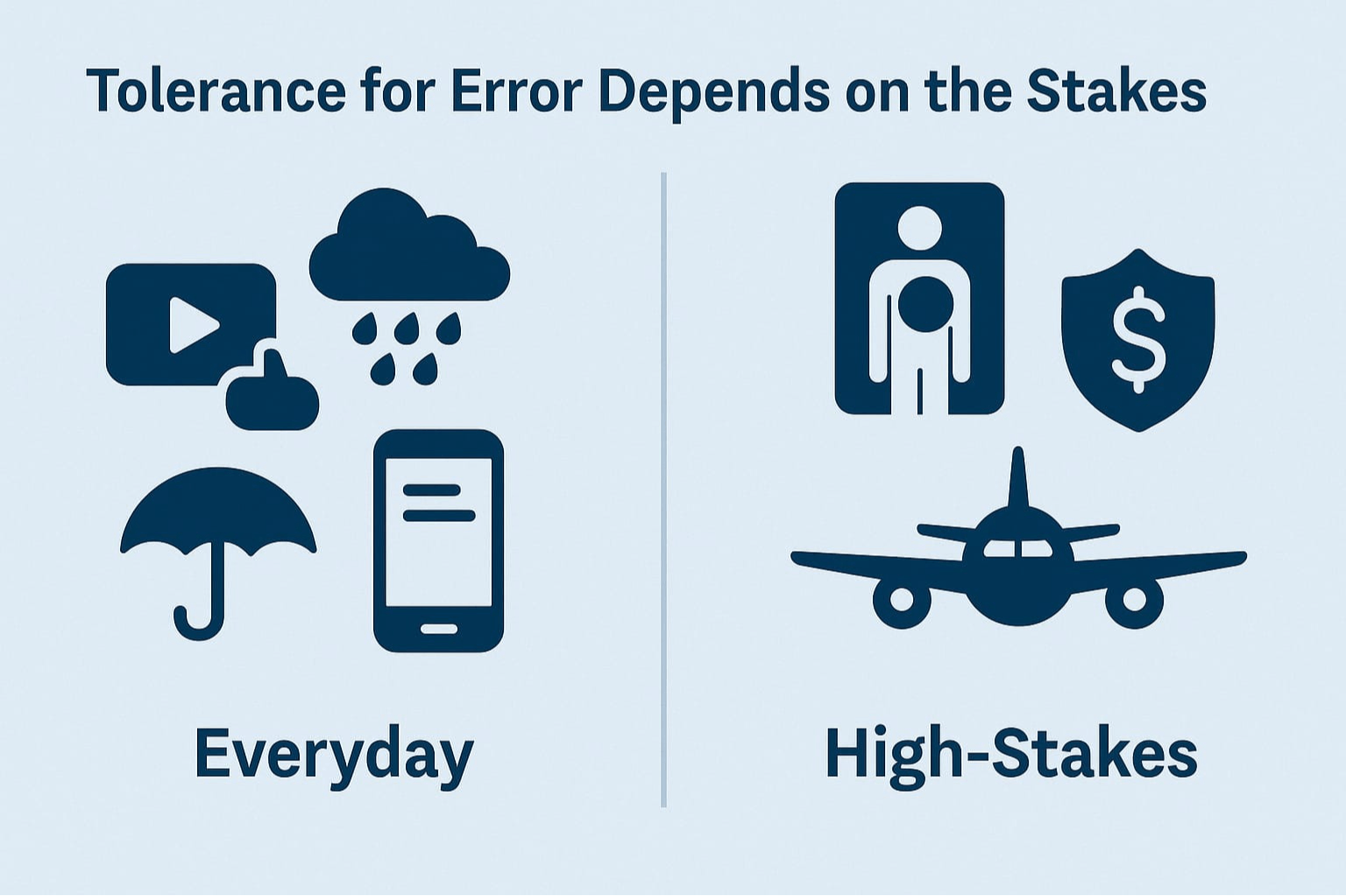Why machine-generated texts sound credible even when they carry no real content.
Opening: the problem we face
The expansion of large language models has created a paradox. On the surface, their outputs look professional. They display balanced sentences, cautious phrasing, numbered outlines, and institutional tone. These are the cues that in traditional writing signal expertise and responsibility. Yet behind the polished surface, much of this writing lacks substance. What makes readers trust these texts? Why do they sound convincing even when they deliver almost nothing?
The central question is simple: why do we believe them?
Introducing Ethos Ex Machina
The answer is what we call Ethos Ex Machina. It is the capacity of machines to generate the appearance of credibility through syntax alone. No facts are required. No authorial identity is needed. What persuades the reader is the structural form of the text itself.
Ethos, in classical rhetoric, was anchored in the moral character of the speaker. In modern scholarship, it is often associated with authorial reliability or institutional reputation. With AI systems, both of these anchors collapse. There is no speaker, and the “author” is a statistical process. Even so, the texts produced sound authoritative. This is not accidental. It results from the repeated use of structural markers that function as signals of credibility.
How it works: the mechanics of credibility without content
Ethos Ex Machina relies on a limited set of recurring configurations:
- Symmetric coordination. Sentences balanced in length and category create an impression of fairness. Readers assume the text is weighing options, even when no evidence is provided.
- Measured negation. Phrases like “cannot be excluded” or “not inconsistent with” suggest caution and restraint. They simulate the language of careful analysis.
- Legitimate passives. When actions are expressed without agents, especially in procedural contexts, the text feels impersonal and objective.
- Calibrated modality. Words like “may,” “likely,” or “suggests” make the text sound cautious, avoiding both overstatement and denial.
- Nominalizations. Transforming verbs into nouns (for example, “evaluation” instead of “we evaluated”) abstracts away from individual actors and signals institutional rigor.
- Balance operators. Concessive structures such as “although X, Y” create an appearance of impartiality, as if both sides have been considered.
- Reference scaffolds. Numbered sections, headings, and internal cross-references provide the skeleton of procedural order, even when the sections contain little substance.
Together these markers create the illusion of expertise. They are the grammar of credibility. Readers interpret them as signs of neutrality, professionalism, or procedural control. In reality, they may simply be the product of automated compilation.
Why it matters for scholars and professionals
For linguists, Ethos Ex Machina demonstrates that syntax is not just a medium for meaning but a generator of authority in its own right. The credibility of a text can now be traced to patterns of coordination, passives, and modality, not to the knowledge or intention of an author.
For jurists, the implications are profound. Legal drafts and administrative memos often rely on impersonality and scaffolding. If these features can be generated automatically, then the legitimacy of such documents can be simulated without real verification. What looks like a lawful or procedural voice may in fact be nothing more than formal mimicry.
For developers, the lesson is sobering. Large language models succeed at sounding right not because they understand but because they reproduce the structural signals humans mistake for expertise. Recognizing these signals is essential for building systems that do not simply package emptiness in the clothing of authority.
Examples that expose the illusion
Consider two short passages:
- “The measures were reviewed, and the procedure was confirmed. Although challenges remain, progress is evident. The outcome cannot be excluded.”
- “We looked at the steps. There are still problems. It may or may not be correct.”
The first passage contains almost no information, yet it feels authoritative. The second says the same thing but appears casual and unreliable. What separates them is not meaning but structure. This is Ethos Ex Machina in action.
Risks of structural authority
The danger of Ethos Ex Machina is that it allows authority to circulate without verification. Once readers learn to trust form over substance, truth becomes optional. Institutions that adopt machine-generated drafts may unintentionally reinforce this effect, approving documents because they “sound right” rather than because they are correct.
Over time, the inflation of credibility can erode trust itself. If every text can be made to look authoritative through structural markers, then credibility ceases to discriminate between genuine expertise and automated mimicry. What once signaled rigor may come to signal emptiness.
Why repetition matters
This article is the final piece in a series that has traced the displacement of ethos from author to structure. Ethos Without Source showed that credibility could survive the disappearance of the author. The Grammar of Objectivity demonstrated that neutrality could be simulated through balance and form. Ethos Ex Machina takes the final step, proving that credibility can survive the disappearance of content itself.
The repetition of markers in this work is deliberate. It is both a consolidation for academic readers and a translation for non-specialists. By showing again and again how coordination, passives, and scaffolds work, the analysis ensures that the mechanism is visible, not hidden.
Closing call: vigilance over form
Ethos Ex Machina is not a metaphor. It is a mechanism already at work in everyday texts. We must learn to recognize it, to separate the appearance of credibility from its substance. For scholars, this means refining tools for analyzing structural authority. For institutions, it means resisting the temptation to equate professional form with legitimacy. For the wider public, it means questioning why certain phrases make us trust what may in fact be empty prose.
Authority no longer resides in authorship or in evidence. It can now be compiled by machines. Recognizing this fact is the first step toward maintaining responsibility in an era where the illusion of authority is only a prompt away.
Further reading and full article
The complete academic version of Ethos Ex Machina is available here:
- SSRN Author Page: [https://papers.ssrn.com/sol3/cfdev/AbsByAuth.cfm?perid=7639915]()
- Zenodo DOI: [https://doi.org/10.5281/zenodo.15754714]()
- Personal site: https://www.agustinvstartari.com/
- ORCID: https://orcid.org/0000-0001-7793-0011
Ethos
I do not use artificial intelligence to write what I don’t know. I use it to challenge what I do. I write to reclaim the voice in an age of automated neutrality. My work is not outsourced. It is authored. n — Agustin V. Startari










